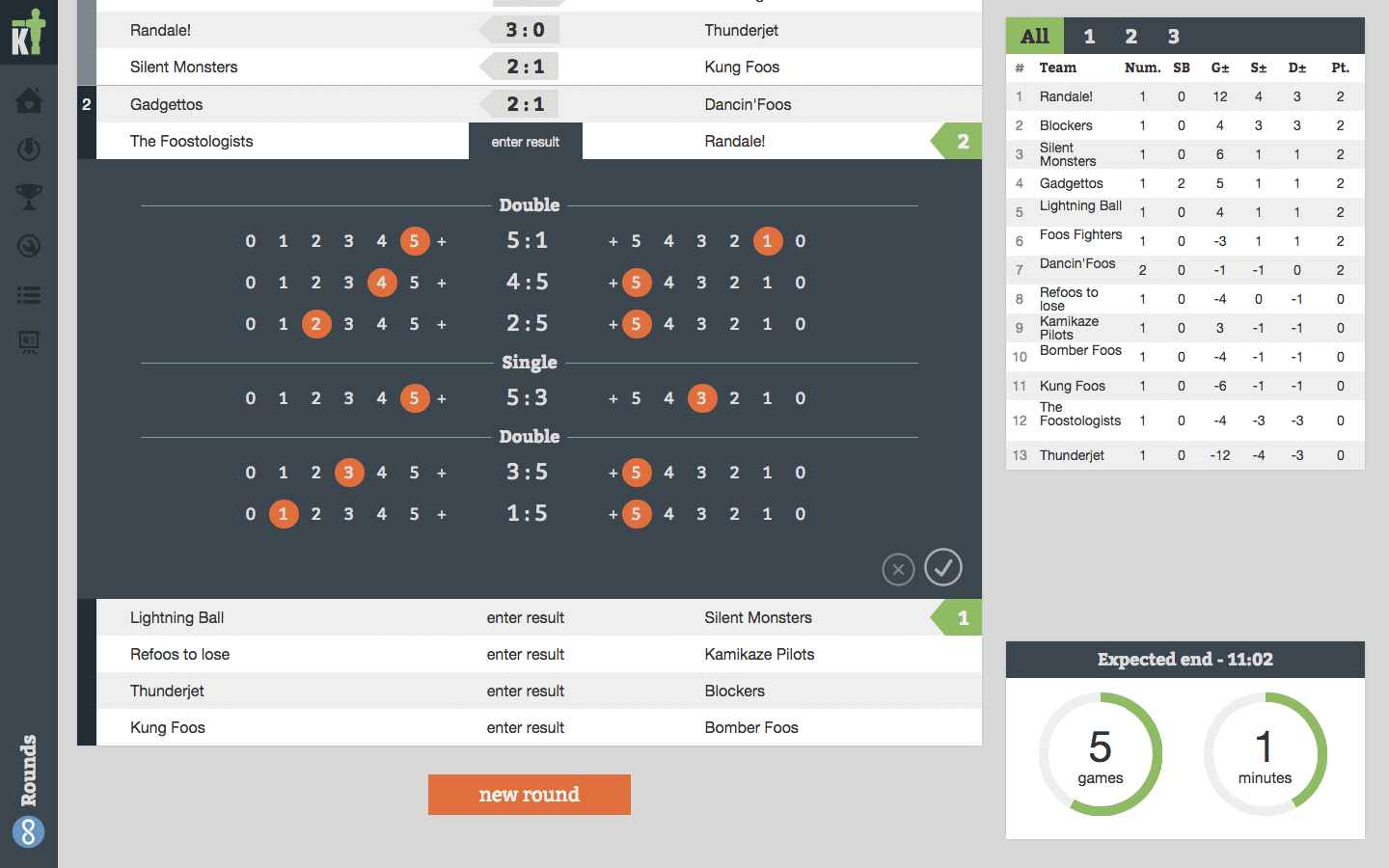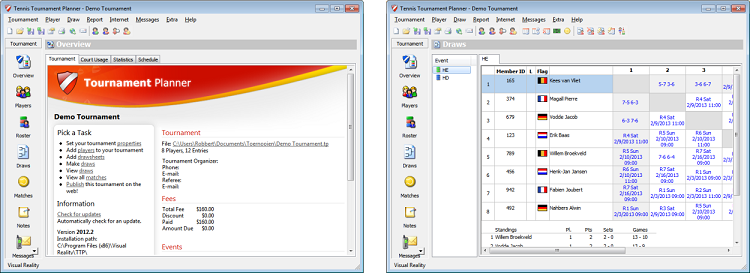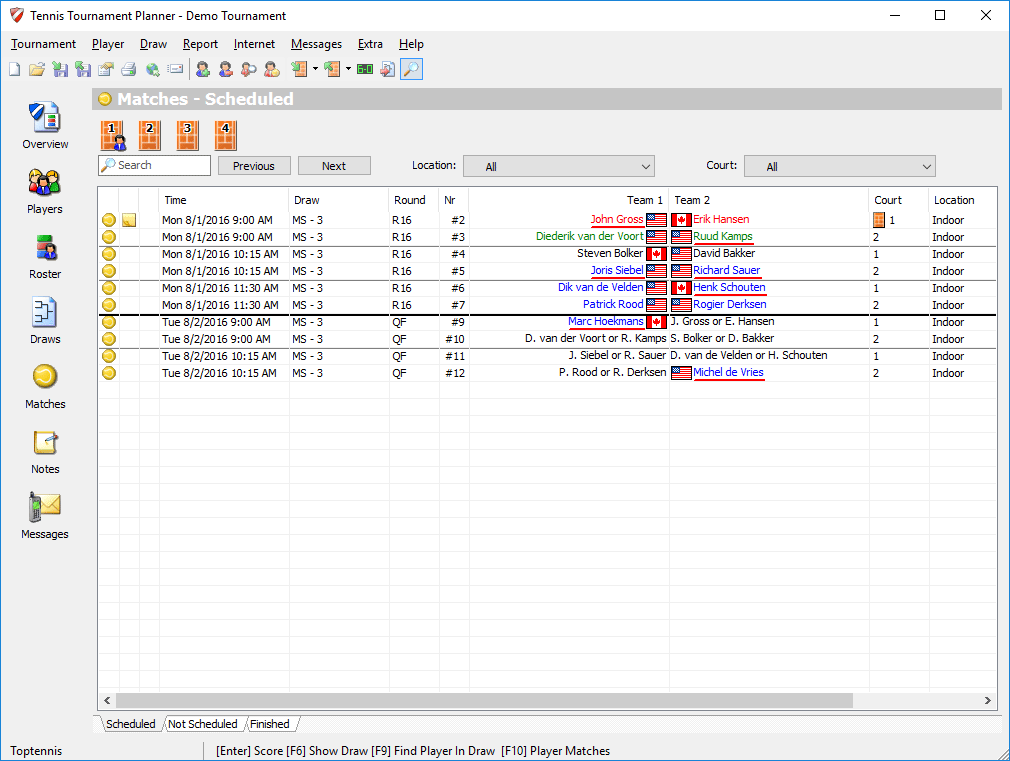Tournament software is transforming how events are organized, managed, and experienced for participants and administrators alike. Whether you are hosting eSports championships, sports leagues, academic contests, or corporate competitions, tournament software offers a streamlined and effective way to handle every aspect of the event. From scheduling matches to tracking scores and providing real-time updates, it brings organization and energy to competitions of all sizes.
By automating processes that were once tedious and error-prone, tournament software enables organizers to focus on delivering memorable experiences. With support for various tournament formats, customizable features, and seamless integration with registration, payment, and communication platforms, these solutions adapt to the evolving needs of both small local events and large-scale international tournaments. The journey of tournament software is marked by continuous innovation, providing tools that are smarter, more accessible, and ultimately more enjoyable for everyone involved.
Introduction to Tournament Software
Tournament software refers to digital platforms or applications designed to simplify and automate the process of organizing, managing, and executing tournaments across a wide range of activities, from eSports and sports competitions to academic and corporate events. These solutions eliminate much of the manual work involved in scheduling matches, tracking results, communicating with participants, and handling logistics, thereby enhancing efficiency and accuracy.
A variety of tournament formats can be managed using this type of software, including single elimination, double elimination, round robin, swiss-system, league, and custom hybrid models. The flexibility provided by modern tournament software means organizers can adapt to events with different scales, participant numbers, and unique rule sets.
Tournament software has evolved significantly since the early days of spreadsheet management and paper brackets. In the past, organizers relied on manual tools like whiteboards or Excel sheets, which were prone to errors and hard to update in real-time. Over time, specialized platforms emerged, introducing automation, live updates, and integration with online services. Today, cloud-based solutions and mobile apps have made tournament management more accessible and scalable than ever.
Primary Functions of Tournament Software
The central role of tournament software is to facilitate seamless management of competition logistics. This includes registration management, match scheduling, bracket generation, score tracking, participant communication, and result publishing. By automating these core tasks, organizers can focus more on the event experience rather than administrative burdens.
Types of Tournaments Supported by Tournament Software
Most modern tournament software platforms are capable of handling a range of tournament formats. Understanding these formats helps organizers choose the optimal setup for their event’s goals and participant profiles.
- Single Elimination
- Double Elimination
- Round Robin
- Swiss-system
- League or Ladder
- Group Stage with Playoffs
- Custom Hybrid Formats
Each of these formats suits different kinds of events. Single elimination is quick and ideal for large brackets with time constraints, while double elimination offers participants a second chance, making competitions more forgiving. Swiss-system is popular in chess and card games, where a large number of rounds and minimal eliminations are desired. Round robin ensures everyone plays each other, suitable for small groups wanting to maximize play time.
Core Features of Tournament Software
Tournament software comes equipped with a suite of features designed to streamline event organization and improve the experience for all stakeholders. The essentials focus on automating repetitive tasks, ensuring data accuracy, and providing live updates.
| Feature | Description | Benefit | Example |
|---|---|---|---|
| Automated Bracket Generation | Creates tournament brackets based on selected format and participants | Saves time and reduces errors in setup | Challonge, Toornament |
| Online Registration | Allows participants to sign up online and input required information | Simplifies participant management and data collection | Smash.gg, Eventbrite integration |
| Live Scoring & Results | Real-time updating of scores, standings, and brackets | Enhances transparency and participant engagement | Battlefy, Tournament Manager |
| Communication Tools | In-app messaging, notifications, and announcements | Keeps participants and organizers informed instantly | Discord, integrated email alerts |
Beyond these necessities, many platforms offer advanced features such as custom branding, rule configuration, analytics dashboards, API access, integration with payment systems, seeding algorithms, and support for streaming or broadcasting. These features enable organizers to tailor the software to specific event requirements and provide a professional experience.
Importance of Core Features in Tournament Organization

Each core feature plays a crucial role in event success. Automated brackets and scheduling help prevent human error and confusion, while live scoring ensures participants and spectators always have access to the latest results. Effective communication tools reduce misunderstandings around schedules or rules. Advanced analytics provide valuable data for improving future events, and integration capabilities help connect the tournament with external platforms, enhancing the overall ecosystem.
Types of Tournaments Supported: Tournament Software

Modern tournament software supports a variety of formats, giving organizers the flexibility to choose the structure that best fits their event’s objectives and constraints. Each format has unique advantages for different participant counts and competition types.
Common Tournament Formats, Tournament software

The most widely supported tournament formats include:
- Single Elimination: Participants are eliminated after one loss. Efficient for large events with time limits.
- Double Elimination: Players have to lose twice before being eliminated, creating a losers’ bracket for a fairer competition.
- Round Robin: Everyone plays each other, ideal for small groups and maximizing playtime.
- Swiss-system: Pairings are set each round based on previous results, popular in games like chess and trading card tournaments.
- League/Ladder: Competitors play over a season, accumulating points or ranking.
- Group Stage into Playoffs: Participants are split into groups for round robin matches, with top performers advancing to elimination rounds.
- Custom Hybrid Formats: Combination of multiple structures tailored to unique event needs.
Suitability of Tournament Formats for Different Scenarios
Choosing the right format depends on factors like number of participants, available time, event goals, and desired competitiveness. For example, round robin works well for events aiming for fairness and full participation, while single elimination is suited for quick, high-stakes competitions. Double elimination is often chosen for eSports tournaments to give skilled players a chance to recover from an early loss. Hybrid formats are frequently used in large-scale sports or gaming events, such as the FIFA World Cup, which combines group play with knockout rounds.
Outcome Summary
In summary, tournament software has become an essential asset for modern event management, providing both versatility and reliability for organizers and participants. As technology continues to advance, its capabilities expand to meet new challenges and opportunities, ensuring that competitions remain fair, engaging, and efficient. Embracing these solutions opens up exciting possibilities for the future of tournaments across industries and communities.
Q&A
What is tournament software used for?
Tournament software is used to automate and manage events, including scheduling matches, handling registrations, tracking scores, and providing communication tools for participants and organizers.
Can tournament software handle both online and offline events?
Yes, most tournament software solutions support both online and offline events, offering tools for virtual competitions as well as in-person tournaments.
Is it necessary to have technical skills to use tournament software?
No, many tournament software platforms are designed to be user-friendly and provide intuitive interfaces, so organizers do not need advanced technical knowledge to set up and run events.
How secure is tournament software with participant data?
Reputable tournament software uses encryption and access controls to protect participant data and comply with privacy regulations.
Can tournament software be integrated with my existing website?
Most modern tournament software platforms offer website integration through plugins, APIs, or embeddable widgets, making it easy to connect with your existing site.